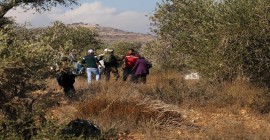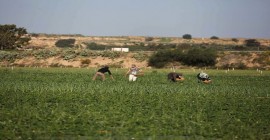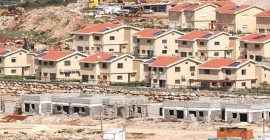Home » Main News » Local »
How is it Possible to Emancipate from Israeli Economic Dependency?
Translated by Sabrin Qadah
The member of the central committee of Fatah, D. Mohammed Shtayyeh, said that the liberation of our national economy from the Israeli dependency is not impossible pointing out to the fact that this can happen through the gradual disengagement from the colonial subordination strategy to increase the cost of occupation.
In an interview with Al-Quds newspaper, he explained that the disengagement can be done through several ways including: supporting national products to substitute Israeli goods, gearing towards alternative technology such as solar energy and through the "water harvesting" mechanism which is based on the collection of water before it reaches the ground and store it in ponds and dams to protect Palestinian water sources, at a time when Israel does not allow us to dig artesian wells.
Shtayyeh felt that one of the means of disengagement process is to expand investment in the Palestinian territories, which in return will create job opportunities for young people who work in the settlements. He also stressed on the need to strengthen relations with the great Arab countries in trade in addition to opening the Gulf States such as Kuwait, Qatar and Saudi Arabia to employ many of our staff.
Shtayyeh continued that the State of Palestine could enhance the productive base of national economy primarily through agriculture stressing the need to transform the function of the current PNA from service-only to resistance. Therefore, he felt that the allocated budget for the agriculture sector requires revision for the manpower to transform our mountains and meadows into green lands.
He noted the need to recognize that the lands classified (c) relate to us and there is nothing to prevent us from cultivating them, in contrary to what the occupation is trying to solidify of misconceptions in the minds of the world, adding that the occupation forbids construction in those areas, but does not prevent the agriculture. He also added that these lands can be used by directing financing agricultural programs to them and employ the unemployed.
He also called for drilling wells without permits from the Israeli army to break the relationship with the Israeli side.
On the eight-month delay of Saudi donation, Shtayyeh said there are no any political changes and the relationship between the two countries is solid. However, there are administrative changes that have taken place in the Kingdom in addition to the decline in oil prices.
He added that the Custodian of the Two Holy Mosques, King Salman bin Abdul Aziz Al Saud, is one of the biggest supporters of the Fatah movement and we believe he will complete the process in order to strengthen our steadfastness.
About Palestinian Jordanian Israeli joint ventures, Shtayyeh said that coordination with Jordan is at the highest level and there is no crisis with the kingdom. He also said there are projects we share such as Bahrain channel.
He stressed that the bilateral relations with Egypt are robust and that horizons between President Mahmoud Abbas and his Egyptian counterpart Abdel Fattah al-Sisi are open, pointing out that Egypt is the protector of Palestine and its legitimacy.





